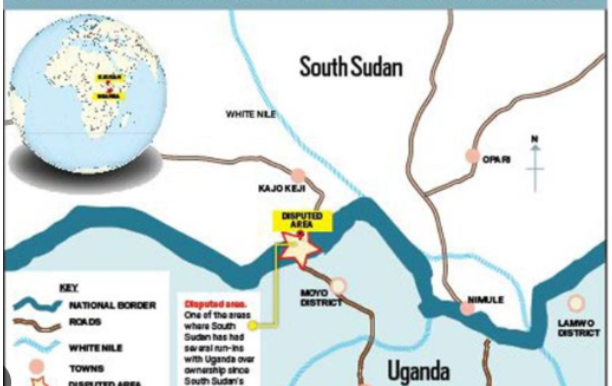South Sudan’s Transitional National Legislative Assembly (TNLA) on Thursday resolved to summon Foreign Affairs Minister James Pitia Morgan and the border committee that was set up to address the border dispute between South Sudan to answer queries about the Kajo-Keji border crisis.
In a motion presented on Thursday, Joseph Kiju, a member of the Kajo-Keji parliamentary caucus, said the Ugandan army has forcefully encroached into South Sudan territory in Nyaingamuda, Bori Boma in Kajo-Keji County, chasing away citizens.
According to Kiju, following the deployment by of the UPDF, hundreds of people including women and children have been displaced after being evicted from Gabor village by people of the Yumbe district in Uganda.
“Since the report by The Observer newspaper in Uganda about the border dispute, the citizens of Yumbe district in Uganda are heavily armed with spears, bows, arrows, and machetes, and are now on a rampage destroying houses and evicting people from the South Sudanese village of Gabor in Bori Boma,” he said. “Hundreds of dwellings and shops have been razed down and properties looted. Children, the aged, and pregnant women are now exposed to deplorable conditions.”
Responding to the matter, the House resolved that the minister of Foreign affairs and International Cooperation, James Morgan Pitia, and members of the committee formed earlier to resolve the border dispute between South Sudan and Uganda be summoned to respond on the matter.
Peter Lomude Francis, a South Sudan Opposition Alliance (SSOA) MP representing Yei River County, described the deployment of UPDF inside South Sudanese territory as a breach of territorial integrity.
“Honorable Speaker, on the encroachment in Kajokeji, it is important that we should get united because if your house is not in order, you can create room for your neighbors,” Lomude said. “So, if we are to discuss this issue of encroachment, it is important that we should first put our house in order. Our neighbors seem to be taking advantage of our division.”
Meanwhile, John Agany, the parliamentary spokesperson, described the border incident as the price to pay for joining the East Africa Community (EAC) and said he was one of the few people opposed to South Sudan joining the regional body because the country is backward in all areas and that this can be used to hold the country, hostage, by her neighbors.
“This was the reason I was saying some years back that let us wait before we join the region (EAC) until we can compete with them,” he said. “They are now encroaching on our land. Is it the thing we want from them?”
For his part, Farouk Gatkouk, a SPLM-IO legislator, said South Sudan should not be silent when it comes to border issues.
“If anybody touches our border, we should not be silent. You guys have been talking about this thing and you have forgotten about the Ilemi Triangle,” said. “That is going to be our next war. Whether we like it or not, it is going to be our war.”
In 2016, a joint border committee was formed at the national government levels of Uganda and South Sudan to resolve the border dispute between the two countries. However, it is not clear how the process ended.
The committee was supposed to consult the communities along the common border followed by a process of border demarcation by a team of surveyors in the presence of the 18-member committee.




